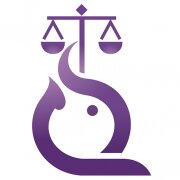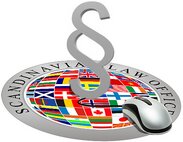About Climate Change Law in Thailand
Climate Change Law in Thailand includes the collection of legal frameworks, policies, and regulations aimed at mitigating and adapting to climate change within the country. As a signatory of key international agreements such as the Paris Agreement, Thailand has committed to reducing greenhouse gas emissions and implementing sustainable environmental practices. The government's focus covers various sectors such as energy, agriculture, industry, and waste management, with an emphasis on both national measures and international cooperation. Thailand's legal framework is evolving rapidly to address new climate-related challenges and align with global standards.
Why You May Need a Lawyer
Seeking legal advice in the field of Climate Change Law can be essential for individuals, businesses, and organizations navigating complex environmental regulations. Common situations where legal help may be required include:
- Understanding and complying with evolving environmental standards and emission targets
- Obtaining permits for projects that may impact natural resources or emissions
- Addressing disputes related to climate regulations, such as non-compliance or liability for environmental harm
- Evaluating the impact of climate policies on existing or new business ventures
- Advocating for environmental protection or seeking compensation for climate-related damages
- Participating in public consultations or policy developments regarding climate action
A lawyer with climate change expertise can help interpret the laws, represent your interests, or guide you through regulatory processes.
Local Laws Overview
Thailand's approach to Climate Change Law is rooted in both international obligations and domestic legislation. Some key aspects include:
- The National Climate Change Master Plan, which sets long-term strategies for addressing climate change nationwide
- The Climate Change Act (currently under draft consideration), designed to provide a legal foundation for setting greenhouse gas reduction targets and enforcement mechanisms
- The Enhancement and Conservation of National Environmental Quality Act (NEQA), governing pollution control, environmental impact assessments, and penalties for violations
- Sector-specific regulations for energy efficiency, renewable energy promotion, sustainable transport, and land use management
- Thailand's pledges under the Paris Agreement, which frame binding commitments regarding emissions and adaptation measures
- Incentives and penalties affecting business operations, such as tax benefits for green investments and sanctions for non-compliance
Overall, local laws are focused on both mitigation (reducing emissions) and adaptation (preparing for and responding to climate impacts), affecting governmental agencies, private enterprises, and individuals.
Frequently Asked Questions
What is the current status of Thailand's Climate Change Act?
As of now, Thailand is in the process of drafting its Climate Change Act. The Act is expected to set out clear legal obligations for public and private entities regarding greenhouse gas reductions and define coordination mechanisms between agencies.
Who enforces climate change laws in Thailand?
Enforcement typically falls under the Ministry of Natural Resources and Environment, specifically the Office of Natural Resources and Environmental Policy and Planning, alongside other sectoral and provincial agencies.
What is an Environmental Impact Assessment (EIA), and when is it required?
An EIA is a process to evaluate the potential environmental impacts of certain projects before they commence. It is required for projects likely to significantly affect natural resources, emissions, or community health.
Are there penalties for non-compliance with climate change regulations?
Yes, penalties can include fines, revocation of permits, operation suspensions, or even criminal liability, depending on the severity and nature of the offense.
How do Thailand's international climate commitments affect local businesses?
International commitments drive the adoption of local regulations that businesses must follow, such as emission reporting, use of renewable energy, or waste reduction, to ensure compliance and eligibility for incentives.
Are there incentives for adopting green or sustainable practices?
Yes, businesses and individuals may access tax incentives, grants, or priority permits for investments in clean technologies, renewable energy, and sustainable practices.
How can communities participate in climate policy decision-making?
Communities can engage through public consultations, stakeholder meetings, and by submitting feedback during regulatory reviews or environmental assessment procedures.
What sectors are most affected by climate change regulations in Thailand?
Key affected sectors include energy, transportation, agriculture, manufacturing, and construction, especially those with direct impacts on emissions and resource consumption.
Can individuals bring legal action for climate-related harms?
Yes, individuals or groups may file complaints or lawsuits regarding environmental harm, pollution, or failure of public authorities to uphold climate laws, subject to procedural requirements.
Do climate change laws apply to foreign companies operating in Thailand?
Yes, all entities operating within Thailand are subject to Thai environmental and climate change laws, regardless of foreign or domestic ownership.
Additional Resources
For more information or assistance on Climate Change Law in Thailand, consider reaching out to these key resources:
- Ministry of Natural Resources and Environment
- Office of Natural Resources and Environmental Policy and Planning (ONEP)
- Thailand Greenhouse Gas Management Organization (TGO)
- Thailand Board of Investment (for green investment incentives)
- Environmental Law Clinics at leading Thai universities
- Non-governmental organizations such as Greenpeace Thailand and the Environmental Law Foundation
Next Steps
If you need legal assistance in Climate Change Law in Thailand, consider the following steps:
- Identify your specific issue or concern, such as compliance, permitting, dispute resolution, or policy advice
- Collect relevant documents such as project plans, environmental assessments, permits, or regulatory correspondence
- Consult with a qualified Thai lawyer specializing in environmental and climate change law
- Ask about experience with similar cases, potential strategies, and estimated timelines
- Follow legal advice and monitor regulatory developments, as climate-related laws and policies evolve rapidly
- If necessary, contact governmental agencies or organizations listed above for additional information or facilitation
By understanding your rights and obligations under Climate Change Law, you can navigate legal requirements more effectively and contribute positively to Thailand's environmental future.
Lawzana helps you find the best lawyers and law firms in Thailand through a curated and pre-screened list of qualified legal professionals. Our platform offers rankings and detailed profiles of attorneys and law firms, allowing you to compare based on practice areas, including Climate Change Law, experience, and client feedback.
Each profile includes a description of the firm's areas of practice, client reviews, team members and partners, year of establishment, spoken languages, office locations, contact information, social media presence, and any published articles or resources. Most firms on our platform speak English and are experienced in both local and international legal matters.
Get a quote from top-rated law firms in Thailand — quickly, securely, and without unnecessary hassle.
Disclaimer:
The information provided on this page is for general informational purposes only and does not constitute legal advice. While we strive to ensure the accuracy and relevance of the content, legal information may change over time, and interpretations of the law can vary. You should always consult with a qualified legal professional for advice specific to your situation.
We disclaim all liability for actions taken or not taken based on the content of this page. If you believe any information is incorrect or outdated, please contact us, and we will review and update it where appropriate.

















